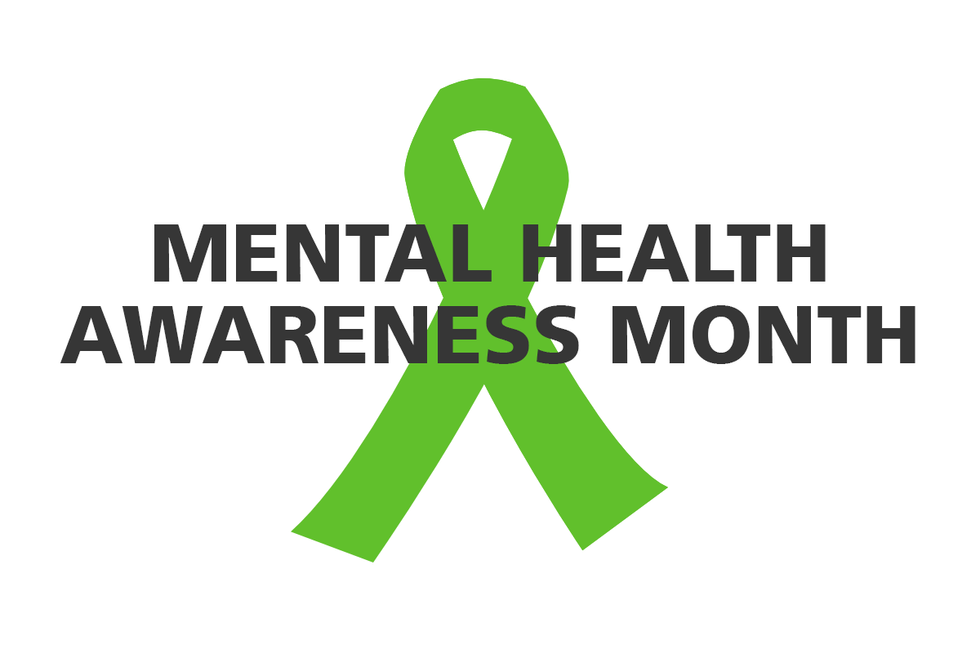May, the fifth month of the year, is known for Mother’s Day, Cinco de Mayo, and Memorial Day. It is also the month that raises awareness and fights the stigma against mental illnesses. Being a forensic psychology major, I’m habitually drawn towards the manifestation of mental illness in all ages, races, and genders. According to the National Alliance on Mental Health (NAMI), “1 in 5 U.S. adults will experience a mental health condition in their lifetime.” To be aware of all types of mental illness, both common and uncommon, can benefit many and lessen the stigma.
Mental illness seems to be at an all-time high, with each situation to its own. Society is forced to become more accepting in regards to the most prevalent ones, such as anxiety and depression for starters. This newfound awareness has brought about a change, even in the slightest. Many have been speaking out and advocating, joining in on the fight to remove stereotypes. There are still many mental disorders that are dangerously stigmatized due to lack of research, such as borderline personality disorder. It's the year 2017 and the outcries for change have continued to fall on deaf ears.
Symptoms
To be borderline means to be bordering both psychosis and neurosis. This meaning never applied to the actual condition, but the name had stuck. Borderline personality disorder (BPD) has only just been considered an actual mental illness by the American Psychiatric Association (APA) in 1980. The newer the mental illness, the more stereotypes and the less awareness there seems to be.
BPD is characterized by emotional instability, feelings of emptiness, distorted self-image, “black-or-white” thinking and “splitting” on those who are close to them because of it, relational difficulties, paranoia, exaggerated fear of abandonment and insufficient impulse control. Interests and values change rapidly and signs are shown of being uncertain about themselves and their future. Other characteristics have to do with recklessness and reoccurring suicidal thoughts or threats.
Triggers
There are two main types of triggers when it comes to someone who suffers from BPD; There are relational triggers and cognitive triggers. Relational triggers corresponded with abandonment sensitivity. This means that feelings are heighten during situations that makes them feel rejected, criticized, or even abandoned. It is usually minor separations such as vacations, sudden change of plans, etc, that get the ball rolling. Overthinking plays a huge factor, as their thoughts consist of, “She didn’t text me back, she must hate me,” all the way to, “I must’ve called her too much, it’s all my fault. I should kill myself.” The cognitive triggers are usually internalized events from their past; Either traumatic situations such as being haunted by abuse, or happy times that creates negative outlooks on life in present time.
Misdiagnoses
It's not uncommon that those with BPD have been misdiagnosed once or twice with Bipolar disorder before [eventually] receiving their correct diagnosis. This medical malpractice affects the lives of those who suffer, as there is a rigid dichotomy between Borderline Personality and Bipolar Disorder. Misdiagnosing is common for BPD because symptoms aren’t shown within the first few therapy sessions. It’s only apparent in a close and intimate setting, once a bond has formed. Another reason for misdiagnoses is that BPD is never a lone mental illness. VeryWell stated, “More than 50% of people diagnosed with BPD also have major depression disorder.” This makes it hard to differentiate which symptoms belong to what. BPD is highly stigmatized, even by doctors themselves, because they have been unfairly recognized as untrustworthy, aggressive, manipulative and deceitful, which are not true at all.
Supposed Causes
When it comes to figuring out the cause of BPD, there are three different suggestions. The National Institute of Mental Health (NIMH) blamed this disorder on genetics, brain structure, and environmental and social factors. BPD is five times more likely to present itself if a family member has it. Events that are traumatic, even previous unstable relationships can be the reason for the manifestation of this disorder. Although, it’s not simply one factor that contributes to this disorder, whereas not everyone who suffered will develop it.
For quite some time BPD was believed to be untreatable. Now, there are treatments and medication that help reduce the symptoms for this disorder. There is Dialectical Behavior Therapy (DBT), Schema Focused Therapy (ST), Mentalization-Based Therapy (MBT), and Transference Focused Psychotherapy (TFP). DBT teaches you have to manage conflict and learn proper coping skills, and sometimes includes meditation. Schema focused therapy is a form of cognitive behavior therapy, which confronts bad beliefs and behaviors stemmed from childhood and rerouting it into positive and healthy coping mechanism. Mentalization-based therapy helps BPD, anxiety, depression, and improves social skills. It helps to become aware of ones own mental processes, and consider their own thoughts and feelings, as well as being able to properly share them. Last but not least, there is Transference Focused Psychotherapy, which focuses on the transference of their emotions to another person. It’s usually a relationship between them and their therapist to get a first-hand sense of how their BPD affects them, and their most obvious symptoms. Simplistic medications that can be taken are usually antidepressants, antipsychotics, mood stabilizers, and anxiolytics. Although, none of these medications are BPD specific.
Stereotypes and misconceptions remove the ability for someone who suffers to find the treatment they need without feeling ashamed. To be able to understand and sympathize with those who have BPD can be the first step in decrease the stigma that makes them feel alone. Someone who suffers from borderline personality disorder should always attend therapy in order to properly cope with day to day life. To be research and be aware of mental illness can empower.
Raise Awareness! Fight the Stigma! Be brave and go green for mental health month.



















